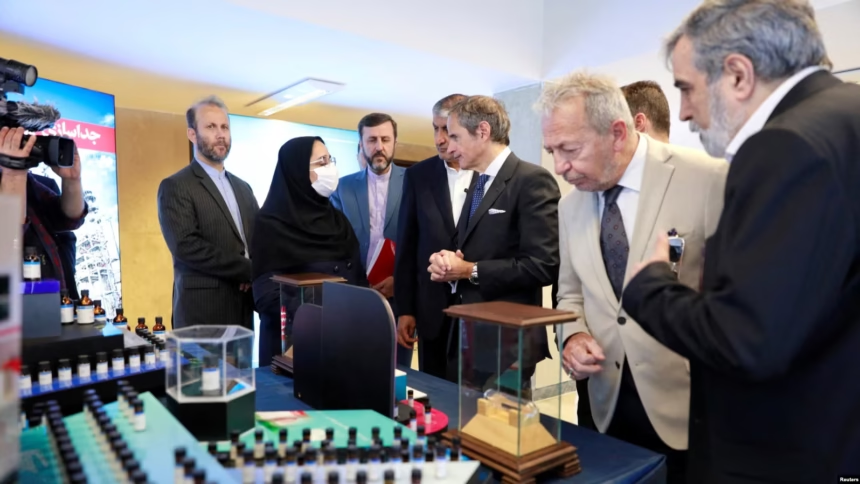Iranian lawmakers have overwhelmingly voted to suspend Tehran’s cooperation with the International Atomic Energy Agency (IAEA). This decision follows the recent bombings of Iran’s nuclear facilities during the 12-day conflict with Israel, reports RFE.
The bill, which state media reports passed on June 25 with 221 votes in favor and none against, still requires approval from the Guardian Council—the body that assesses constitutional compliance. The final decision on its implementation rests with the Supreme National Security Council (SNSC), which formally answers to the president but ultimately reports directly to Supreme Leader Ayatollah Ali Khamenei.
Escalating Tensions and Conditions for Re-engagement
Israel conducted an unprecedented attack on June 13 targeting key Iranian nuclear and military facilities, as well as residential areas, prompting retaliatory strikes from Iran. The conflict resulted in dozens of civilian casualties on both sides before a fragile U.S.-brokered ceasefire was reached on June 24. On June 21, the United States struck three nuclear facilities in Fordow, Natanz, and Isfahan.
The bill’s text states: “In light of the violation of the national sovereignty and territorial integrity of the Islamic Republic of Iran by the Zionist regime and the United States of America, in relation to the country’s peaceful nuclear facilities, as well as jeopardizing the major interests of the Islamic Republic of Iran… The Government is obligated, immediately upon the entry into force of this law, to suspend all cooperation with the IAEA within the framework of the Treaty on the Non-Proliferation of Nuclear Weapons (NPT) and relevant agreements.”
If approved, this law would condition the lifting of the suspension on guarantees for the safety of Iranian nuclear facilities and scientists, as well as the recognition of Iran’s right to enrich uranium domestically. Israeli attacks reportedly targeted scientists involved in Iran’s nuclear program. Iran consistently maintains that its nuclear program is for peaceful purposes only and does not aim to develop nuclear weapons. Suspending cooperation with the IAEA would mean an interruption of inspections, reports, and monitoring activities under the NPT.
Criticism of IAEA and Future Outlook
Iranian Parliament Speaker Mohammad Baqer Qalibaf criticized the IAEA, stating it “did not even try to condemn the attacks on Iran’s nuclear facilities,” accusing it of “selling its international credibility.” Tehran has for years accused the IAEA of bias and cooperation with Western powers and Israel against Iran.
IAEA Director General Rafael Grossi has consistently expressed concern over Iran’s lack of cooperation, particularly regarding investigations into several undeclared nuclear sites.
“The Atomic Energy Organization of Iran will suspend cooperation with the agency until the security of nuclear facilities is guaranteed, while Iran’s peaceful nuclear program will advance at a faster pace,” Qalibaf declared, as lawmakers chanted “death to America” and “death to Israel.”







